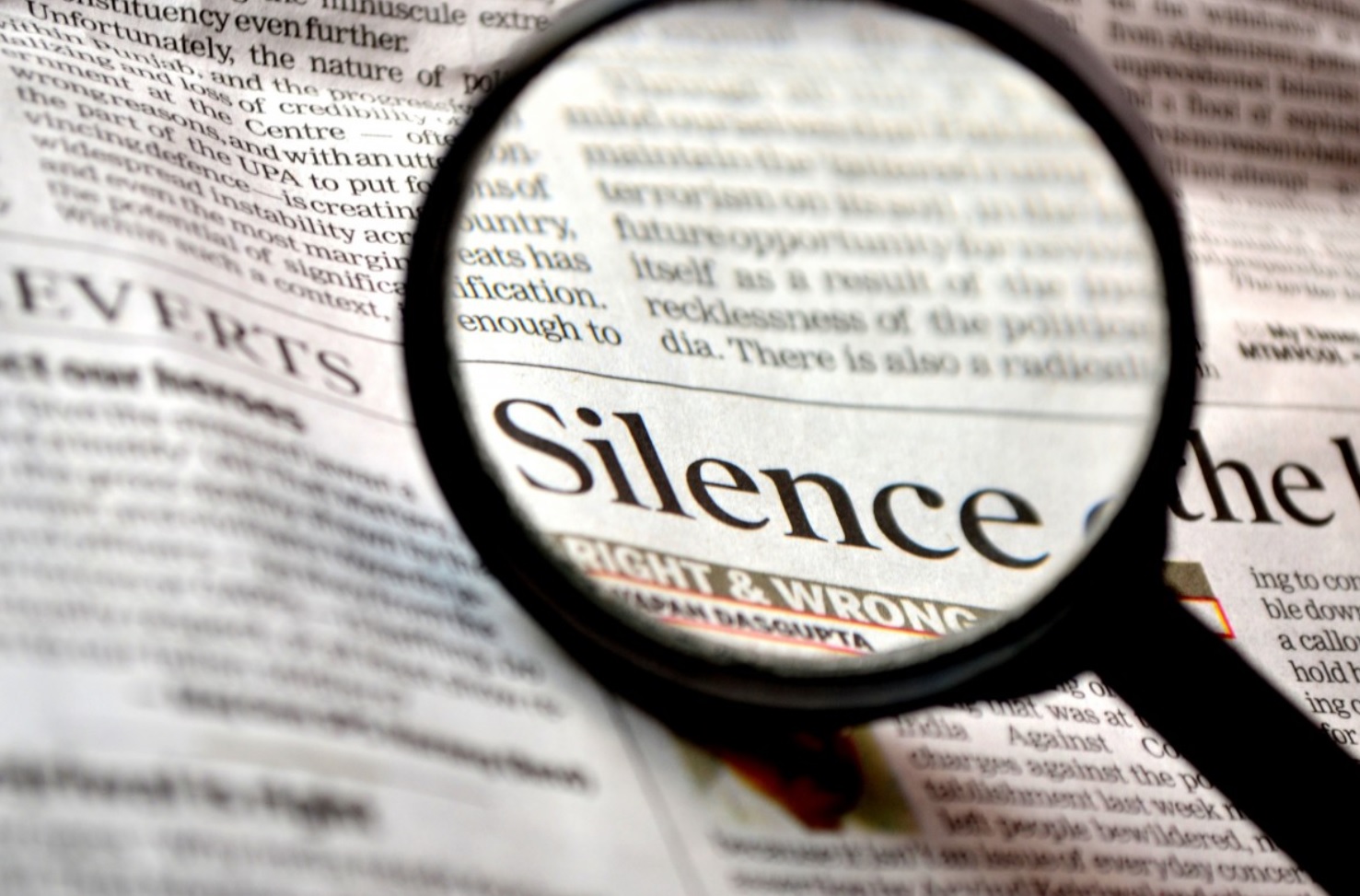
the Post-Conflict Research Center (PCRC) in Sarajevo has published an official research report on the state of media freedom in 17 local BiH communities that reveals the real-life, everyday struggles that journalist and reporters face in their efforts to produce unbiased, objective, and relevant content.
As a part of the project “Real Voice of Journalism”, supported by the European Union through the small grants program “Protecting Media Freedom and Freedom of Expression in the Western Balkans”, the Post-Conflict Research Center (PCRC) in Sarajevo has published an official research report on the state of media freedom in 17 local BiH communities that reveals the real-life, everyday struggles that journalist and reporters face in their efforts to produce unbiased, objective, and relevant content.
The research is based on the work of the local media through the voices of its journalists and has provided an opportunity to showcase the true state of journalism in targeted BiH communities.
Tatjana Milovanović, one of the report’s authors, stated that 30 journalists contributed to the research. All of them are professional journalists who work as correspondents and freelancers for different local media outlets.
“The research was broken down into several stages. We first asked them to describe one working day and to tell us about the challenges they faced. They were also asked to tell us what they think the advantages of being a journalist in BiH are as well as what their recommendations for improvement would be,“ explained Tatjana.
Tatjana also noted that the research showed that many journalists are aware that they sometimes do not conduct their work in the most professional of ways. The research revealed that there are many reasons for this. Some of the primary problems that were uncovered are common to all journalists, while others are specific to local BiH journalists and their reporting environments. Financial dependence on local authorities, various pressures and threats, and ever-increasing censorship and self-censorship have been highlighted as the main obstacles. According to the journalists interviewed, this is exactly the kind of situation that contributes to a working environment in which is hard to do work in a professional manner.
In local communities, many correspondents agree that the hardest topics to report on are nepotism, corruption, and stories about post-conflict issues. According to the interviewees, topics related to economics, everyday life, culture, and sports are much easier to report on. The interlocutors also consider media outlets such as Radio Free Europe (RFE), N1 Television, Al Jazeera Balkans, and the Balkan Investigative Reporting Network (BIRN BiH) as most trustworthy. The research also revealed that journalists consider the existing legislation decent but that the laws are not being implemented correctly, which adds to the problems faced by media workers in BiH.
Other challenges faced by journalists in local communities include finding relevant interviewees as well as the general lack of topics and events to cover.
‘‘What bothers me the most are the stories that have nothing to do with the everyday life and problems of people in local communities. News is only being “produced” in favor of the governing structures and is manufactured to show us how everything is great and everybody is happy. There is a lot of censorship going on and every attempt to hear another opinion is being blocked,” states a journalist from Višegrad who wishes to remain anonymous.[1]
Another author of this report and journalist for Radio Free Europe (RFE), Marija Arnautović, also stated that it is much harder for local journalists in smaller communities to report on certain topics than it is for journalists in Sarajevo, Banja Luka, or Mostar. What is also worrying is the lack of solidarity that exists between local journalists as well as their claims that they don’t truly feel safe while on the job.
Lejla Turčilo, a professor at the University of Sarajevo’s Faculty of Political Science, explains that there is absolutely external pressure being put on the media, but that there are also pressures put on journalists by media houses themselves who seem value everything but their own correspondents.
“Very often, it is reported that the first location at which journalist’s rights have been threatened is, in fact, at the media agency for which they work. The owners and editors of those agencies are more concerned about politics and public opinion than they are about their own journalists, and when you point out to the editors what their journalists are saying about the deplorable working conditions, the only response you receive is ‘if they have somewhere else to go… they are free to do so.’ That is the scariest attitude that exists towards journalists in my opinion,” says Turčilo.
This raises the question about what kinds of stories we can then expect from the journalists that are working in such conditions, but for Turčilo, such conditions do not justify the unprofessionalism that we often see within media.
Citizens Do Not Trust the Media
A public opinion survey conducted by the Association of BH Journalists in 2017 points out the fact that BiH citizens have an almost equal distrust of the media as they do for the religious community. Media distrust is a result of living in a system that was once under the control of the Social Federal Republic of Yugoslavia (SFRY) and during a time of extreme nationalism after the state collapsed and the media served the political leaders and military propagandists.
“There are media that indeed work in accordance with the journalistic standards, but there are also those who remain under the influence of the political parties and work in accordance with those parties’ interests. Such media base their reports on less than truthful information and focus more on praising the parties they represent and on campaigning against their opponents. The basis for the media to be independent is to have financial independence, which is rare today,“ says Gojko Veselinović, a journalist from Banja Luka.[2]
What the Real Voice of Journalism (RVJ) research has shown, and what Borka Rudić from the Association of BH Journalists points out, is that there is an increasing number of online media outlets that are being established by politicians during election campaigns.
“Your research has detected some critical problems, one of which is the launching of media outlets by politicians. We have journalists and editors on elections lists. Journalists can and should actively participate in politics, but it shouldn’t influence their work or the media content they produce. Only journalists can fight for professionalism in their field. They must protect their profession because no other system will solve these issues for them,” Rudić emphasizes.
According to data from the Communications Regulatory Agency of Bosnia and Herzegovina (CRA), there are 386 active (traditional) media outlets in BiH, including 10 daily newspapers, 189 other print magazines 144 radio stations, and 43 television stations. An accurate statistic on the number of online media platforms is not available at this time.[3]
The RVJ research further revealed another challenge local media makers face, which is a lack of media literacy among citizens. Given the large number of active media outlets and the high volume of available news content, this is a significant challenge to overcome.
Milorad Milojević, a journalist from Banja Luka, believes that very few citizens are equipped to critically and objectively analyze the information they receive through the media.
“I often record surveys and work directly with citizens and what I have noticed is that people very easily fall under the influence of populist politics… It seems that some of us have not moved very far from the war trenches.“[4]
It is also a significant challenge for journalists, especially those working in local communities, to resist falling under the influence of politics and to succeed in reporting in an objective and ethical manner.
Milojević would agree, stating that the main challenge for journalists is to retain their independence and not fall under the influence of censorship and self-censorship. “The biggest challenge is to present an unbiased story in a way that everyone understands. Journalists should work for all citizens, not for politicians, business people, or criminals,” he says.[5]
In Lieu of A Conclusion
The constant political pressures are only mounting, especially within the local media, which is one reason why professional journalism is fading. The lack of adequate processing of attacks on journalists also poses a significant problem. A very small percentage of reported cases have been resolved, and, even if resolved, they are treated as a misdemeanor rather than a criminal offense. Thus, attacks on journalists are treated as disturbance of public order and peace and not as a criminal act of violating the journalists’ right to report, thereby diminishing the gravity of these crimes.
Journalists are under constant pressure and the poor economic situation only serves to further compound the issues. Many journalists are working for multiple media houses simultaneously and their salaries are abysmal. Unofficial data from the Association BH Journalists reveal that an average journalist’s salary is 500-600 BAM (Bosnian Convertible Mark) and that only journalists and working for media houses that are financed from abroad have a higher monthly income. Additionally, most journalists are employed on short-term contracts.[6]
Journalists need help to fight for decent working conditions in local communities, but above all, they must become a united front in that fight. And they also need to insist that journalism as a profession needs to be free from any influence so that they can be fully responsible for any and all content they create. Again, it is only the journalists themselves that can fight for serious and independent journalism.
This article has been published as part of the “Real Voice of Journalism’’ project. The project is funded by the European Union through the small grants programme “Protecting Media Freedom and Freedom of Expression in the Western Balkans” implemented by the Croatian Journalists’ Association as part of the regional project “Western Balkan’s Regional Platform for Advocating Media Freedom and Journalists’ Safety”, which is carried out through the partnership of six regional journalists’ associations – Independent Journalists’ Association of Serbia (IJAS), Association of BH Journalists (BHJ), Croatian Journalists’ Association (CJA), Association of Journalists of Kosovo (AJK), Association of Journalists of Macedonia (AJM), and Trade Union of Media of Montenegro (TUMM)

[1] Post-Conflict Research Center. Interview during the implementation of the project “Real Voice of Journalism”. January – April 2018.
[2] Post-Conflict Research Center. Interview during the implementation of the project ‘’Real Voice of Journalism’’. January – April 2018.
[3] Regulatorna agencija za komunikacije (RAK) https://www.rak.ba/bos/
[4] Post-Conflict Research Center. Interview during the implementation of the project ‘’Real Voice of Journalism’’. January – April 2018.
[5] Post-Conflict Research Center. Interview during the implementation of the project ‘’Real Voice of Journalism’’. January – April 2018.
[6] IREX Media Sustainability Index https://www.irex.org/resource/media-sustainability-index-msi






